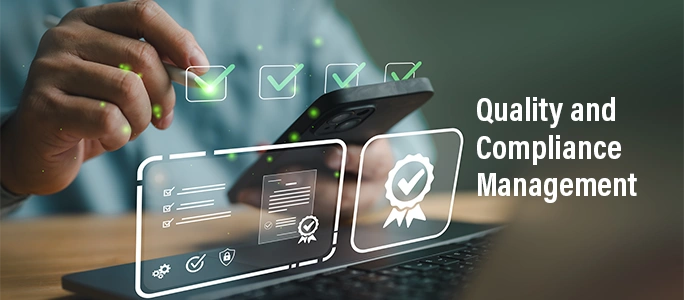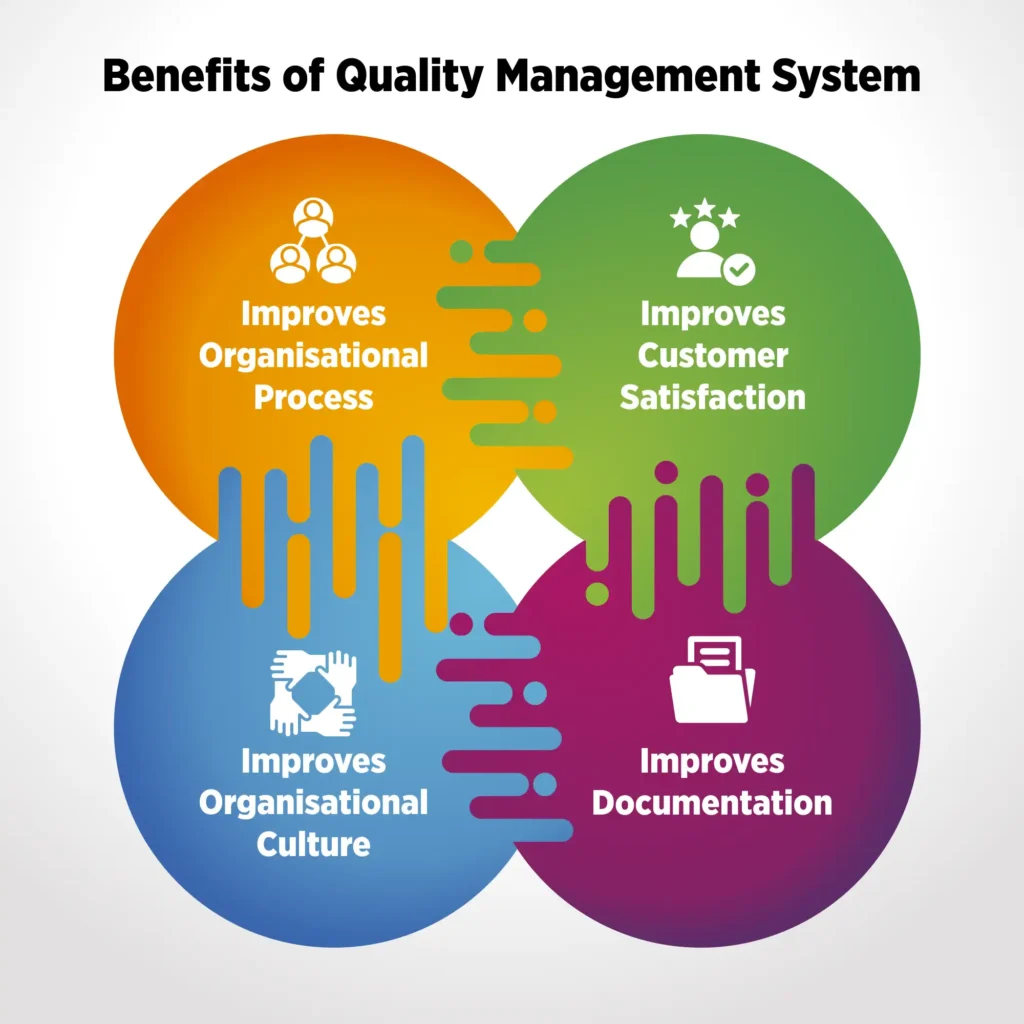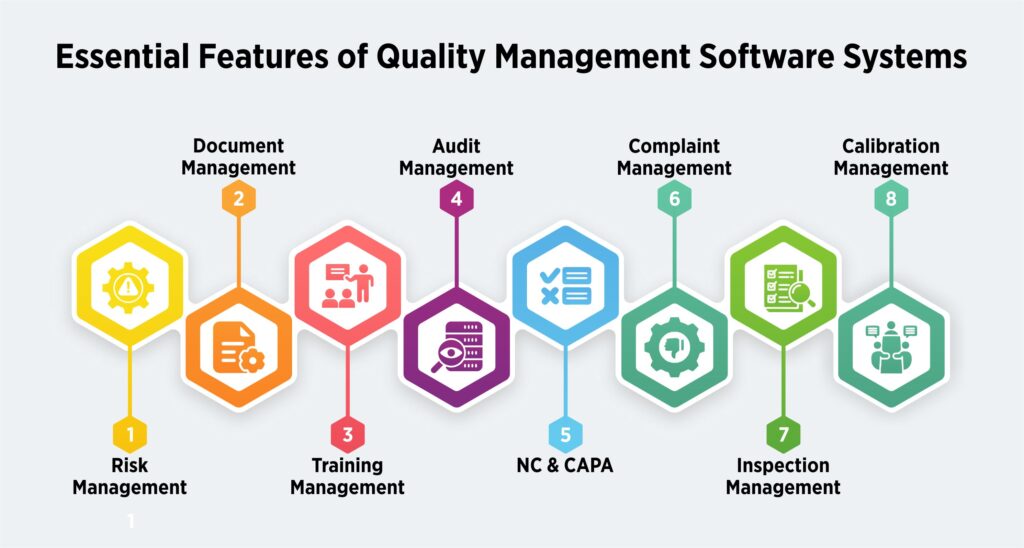
Quality and compliance are the foundation for any organization’s long-term success. But how do businesses ensure they deliver high-quality products while meeting compliance regulations?
In this guide, we’ll explore quality and compliance management in-depth and highlight effective software solutions to help organizations stay on track. Let’s dive in!
Overview
Quality and compliance might seem like two separate concepts at first glance, but they are deeply intertwined. Both quality and compliance play critical roles in shaping the reputation of a business and ensuring it meets industry standards and consumer expectations.
Today’s consumers are more aware than ever—they expect high product quality and complete transparency about compliance with regulatory standards. This heightened awareness leaves no room for compromise: businesses must prioritize both quality and compliance to earn trust and stay competitive.
If these two aspects are so crucial to an organisation’s success, it’s essential to explore how businesses can effectively manage quality and compliance. In this blog, we will delve into quality and compliance management and recommend Quality and Compliance Management Software that can assist in delivering high-quality products while adhering to industry regulations.
What is Quality?
Quality is a term that defines a product or service’s ability to meet the specific expectations set by the customer or regulatory standards. It encompasses several factors, including design, production processes, efficiency, safety, cost-effectiveness, and timely delivery.
In simple terms, quality is a measure of how closely a product or service adheres to predefined standards or specifications. It is also a reflection of how well a product or service meets its intended purpose, contributing to customer satisfaction and loyalty.
What is Quality Management?
Quality management is the systematic process of overseeing the various activities involved in creating a product or service to ensure that it consistently meets quality standards. There are four key components of quality management:
- Quality Planning – Defining quality goals and the processes necessary to achieve them.
- Quality Assurance – Ensuring that quality standards are being met throughout the production process.
- Quality Control – Monitoring and inspecting products to ensure they meet the set standards.
- Quality Improvement – Continuously refining processes to enhance quality and efficiency.
The integration of these components forms a comprehensive approach known as Total Quality Management (TQM), which strives for continuous improvement in all aspects of an organization’s operations.
What is Quality Management System (QMS)?
A Quality Management System (QMS) is a structured framework that documents an organization’s policies, processes, and procedures for achieving quality goals. The purpose of QMS is to streamline quality challenges, eliminate inefficiencies, and reduce costs by improving processes across the organization.
In today’s competitive global market, implementing robust QMS software is essential for businesses to stay relevant. It ensures that all processes are aligned with industry standards, improves operational efficiency, and enhances customer satisfaction.

Fundamentals of Modern Quality Management Systems
Traditional QMS solutions are often outdated and too complex to meet the needs of modern businesses. However, modern QMS platforms are designed with user-friendliness, flexibility, and efficiency in mind. Here are the key fundamentals that modern QMS systems should follow:
Unified Application
Fragmented and disconnected systems waste time, increase the risk of errors, and add unnecessary complexity. A unified Quality and Compliance Software connects all aspects of quality management, such as document management, data analysis, training, and more, into one streamlined platform.
Effective eQMS Software integrates essential modules to ensure seamless operations, such as:
- Scheduling and managing training sessions
- Storing and managing essential documents
- Risk management and mitigation
- Managing compliance and audits
- Implementing corrective and preventive actions
By consolidating all quality management processes in one place, businesses save time and reduce the potential for errors.
Visibility
In today’s fast-paced business environment, it’s vital to have real-time visibility into all quality activities. Modern QMS systems should offer comprehensive, real-time data analysis that helps businesses proactively address quality issues before they escalate.
The Advanced Quality and Compliance Management System provides in-depth visibility into all quality-related activities, enabling businesses to identify risks and nonconformities early on.
By offering a clear overview of quality metrics, it allows companies to take corrective actions swiftly, reducing the likelihood of future risks.
Control
Protecting sensitive data is crucial for any organization. Modern QMS Software solutions allow you to grant controlled access to data, ensuring that only authorized individuals can view and make changes to critical information.
This level of control is essential for maintaining data integrity and protecting an organization’s reputation.
Essential Features of Quality Management Software Systems

Modern Quality Management Software System provides comprehensive features that help businesses ensure product quality while adhering to compliance regulations. These essential components include:
- Risk Management
- Document Management
- Training Management
- Audit Management
- (Non-Conformance) NC & Corrective and Preventive Actions (CAPA)
- Complaint Management
- Inspection Management
- Calibration Management
With these functionalities, businesses can meet both their quality goals and compliance requirements more effectively.
What is Compliance?
In simple terms, compliance refers to the adherence to legal standards, industry regulations, and organizational guidelines.
Compliance management involves ensuring that an organization meets all the regulatory requirements related to its industry, which can include safety regulations, environmental standards, and financial practices.
The importance of compliance has grown significantly as companies face increasing scrutiny from regulators and customers alike.
Failure to comply with regulations can result in severe consequences, including financial penalties, loss of business, and damaged reputation.
What is Compliance Management System?
A Compliance Management System (CMS) is a software tool designed to help organizations meet various regulatory requirements.
These systems streamline compliance processes by automating tasks such as document management, audit tracking, and regulatory reporting.
The primary goal of a CMS is to simplify compliance tasks and provide businesses with real-time visibility into their compliance status.
By offering tools to manage compliance obligations and automate key processes, these systems reduce the risk of penalties and legal consequences.
Benefits of Compliance Management System
Implementing a robust CMS provides several advantages for businesses:
- Time Savings: Automates compliance-related tasks such as data collection and communication, freeing up time for employees to focus on other critical areas.
- Tracking Changes: Helps track changes in compliance regulations, ensuring that businesses stay up to date with new legal requirements.
- Seamless Integration: Integrates updated compliance regulations into the system, ensuring consistency and minimizing errors.
Effective Quality and Compliance Management Software offers many additional benefits such as:
- Organizing and managing regulatory compliance information
- Identifying which regulations apply to the organization
- Automating compliance tasks across departments
- Protecting the organization from legal repercussions and penalties
QualityPro: Quality Management System or Compliance Management System?
QualityPro is an integrated solution designed to address both quality and compliance management, providing businesses with the tools necessary to meet the highest standards in both areas.
As a modern manufacturing quality management software, it combines the benefits of both quality management and compliance management, ensuring your products consistently meet quality expectations while adhering to regulatory standards.
The power of QMS software lies in its ability to help organizations maintain product quality and compliance simultaneously.
By offering a comprehensive suite of features, it supports businesses in delivering high-quality products that attract consumers, build brand trust, and minimize operational risks.
By ensuring compliance and quality, QualityPro not only helps businesses maintain product quality but also shields them from the risk of costly penalties.
Its robust features simplify the process of managing both quality and compliance, ensuring that businesses can focus on growth and customer satisfaction without compromising on legal or quality standards.
For manufacturers looking for a comprehensive Quality and Compliance Management Software, QualityPro is an ideal solution.
To explore how QualityPro can streamline your operations and improve your quality and compliance management, feel free to contact our team and see the product in action.





